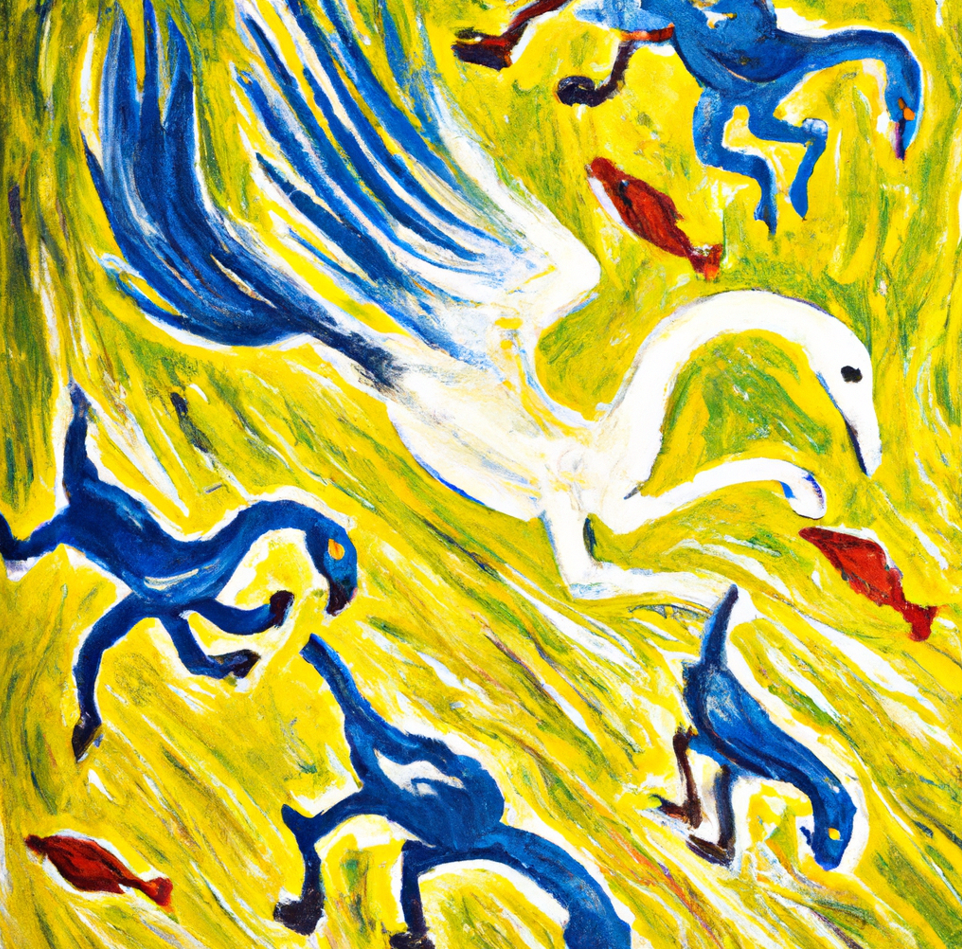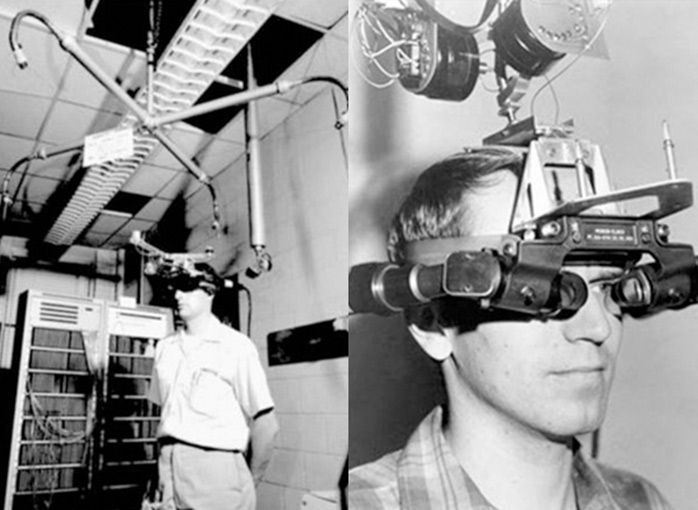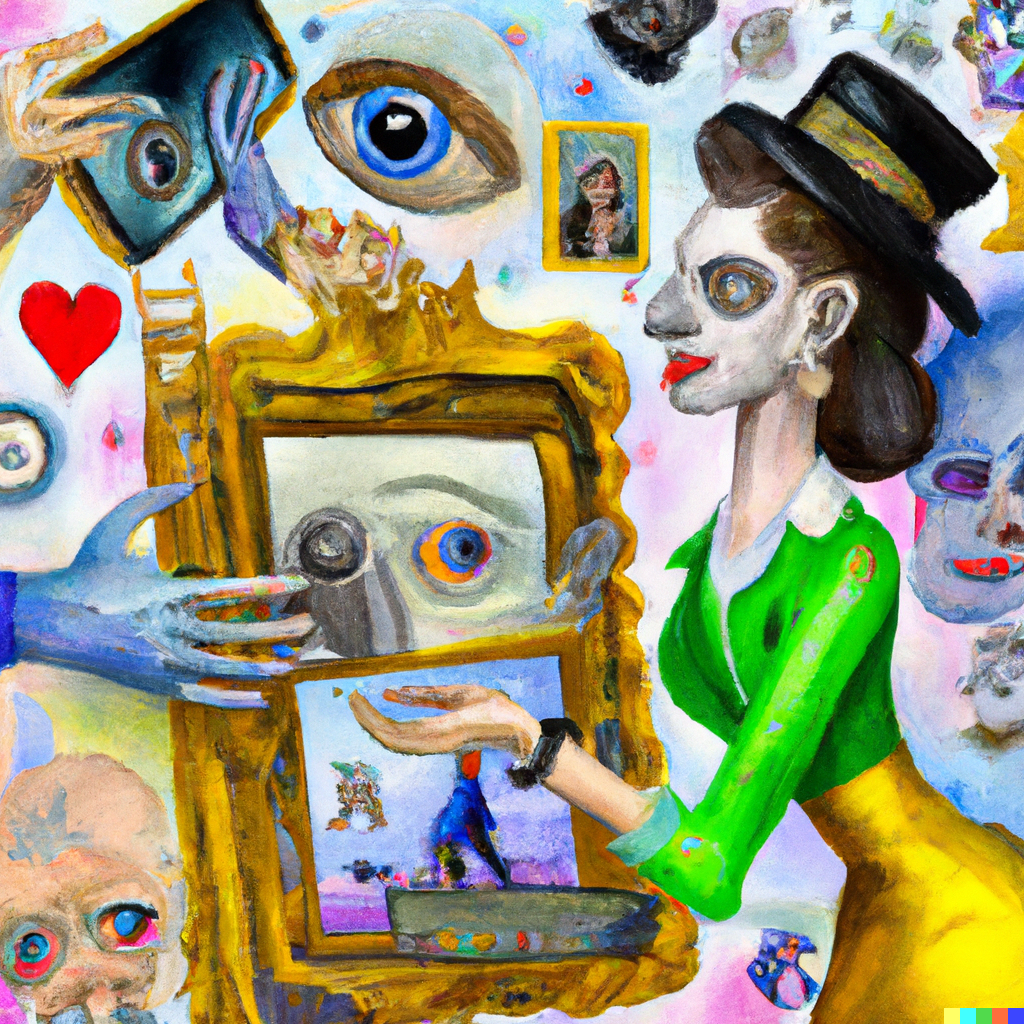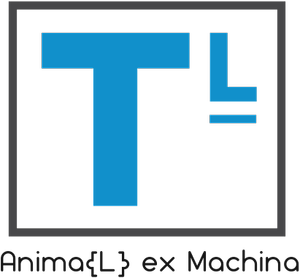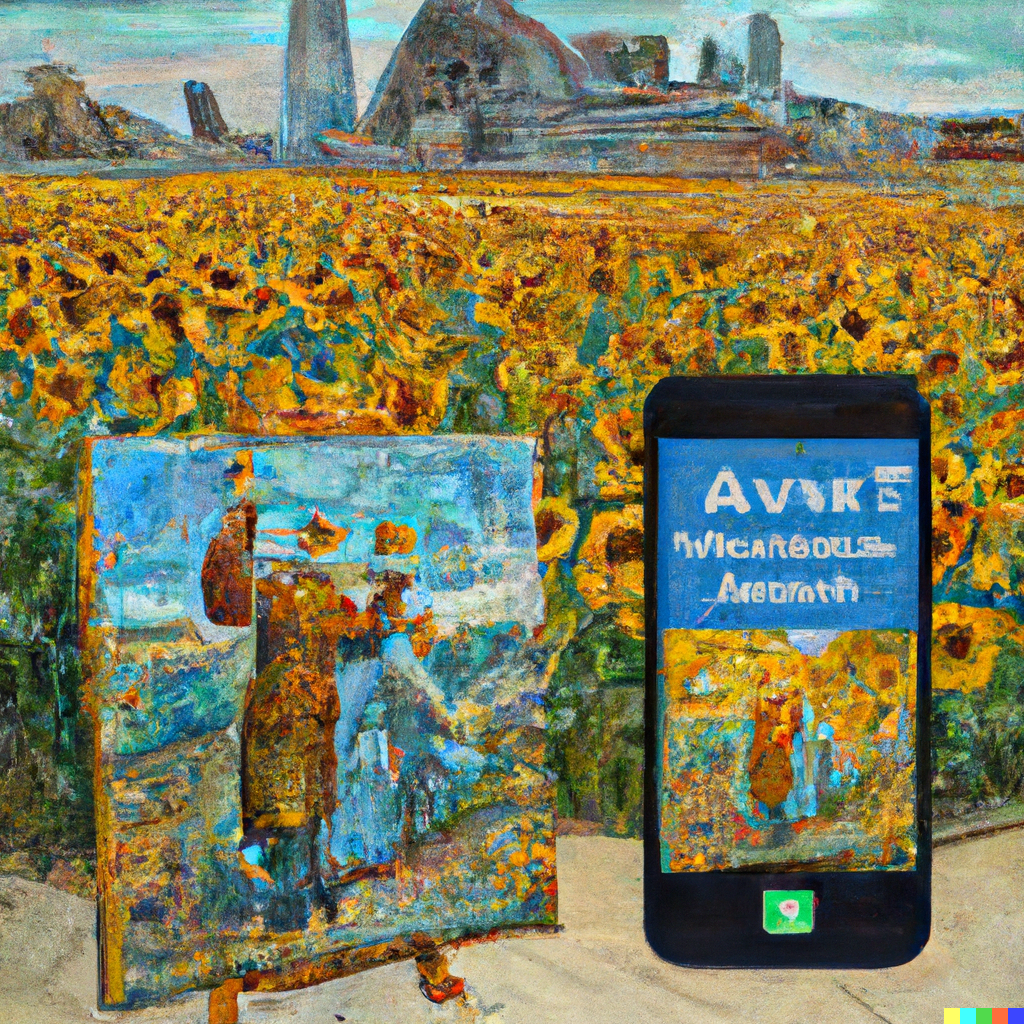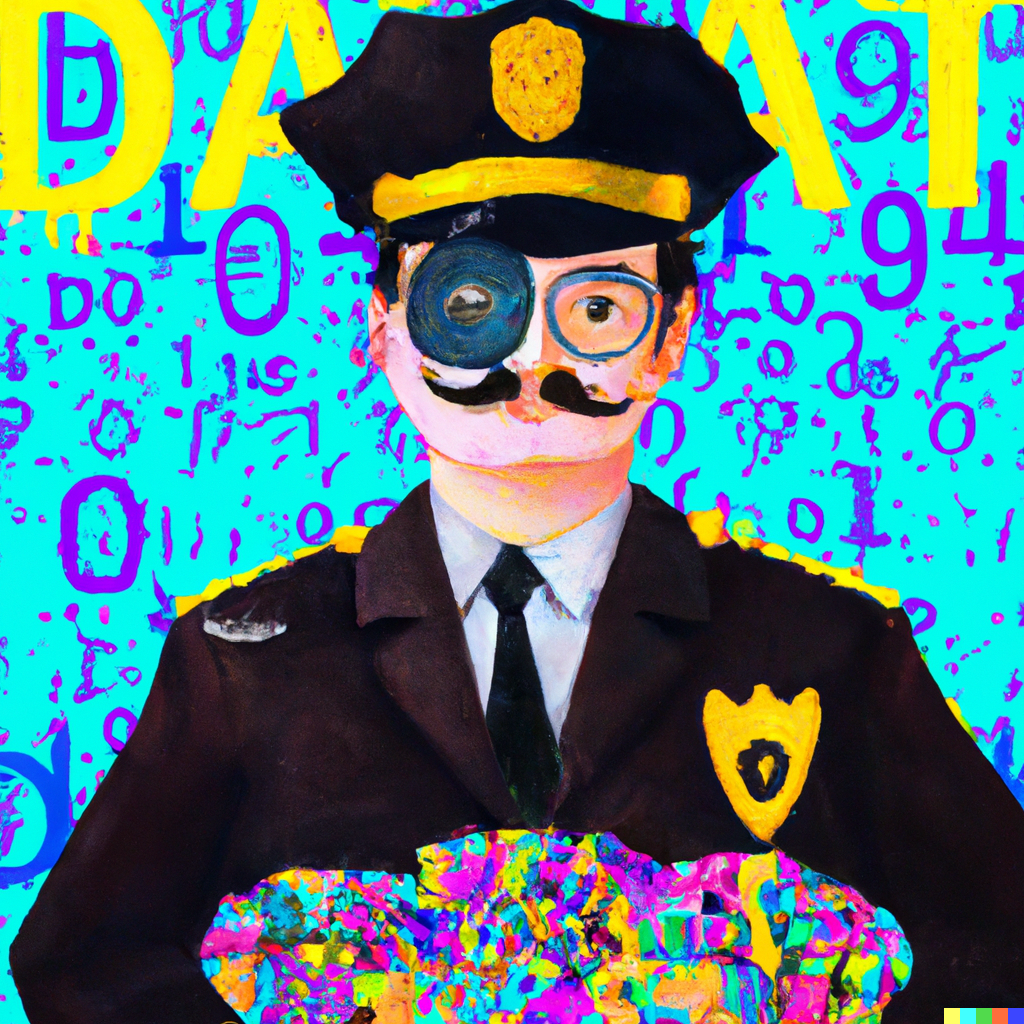Why AI? My Shift from Marketing to Academia
Don’t take me wrong. I had an amazing job working for the best company. I was leading Innovations and eCommerce marketing in 120 countries, traveling around the world, tasting food from different cultures and building with LEGO bricks all day every day for many years. I even told my husband and friends: “I will never leave LEGO office. I´m going to grow old and die with bricks in my hands.”
But inside, I felt something was wrong, and one day, that something turned my life upside down.
Oh…Wait a minute!
If you spend more than half of your life in eCommerce, you must be prepared for new technologies, innovations, and the never-ending process of change. So, nearly fifteen years ago, when I first met with an agency that introduced me to the then-new Google and Facebook ad services, I was ready to adapt once again.
In gothic Prague, where Rabi Löw created his artificial human called Golem and brothers Karel and Josef Čapek originated the word Robot, I debated ad algorithms, and I had no idea how this would be significant in my future life. After presenting what these services could do, I had an “Oh…wait a minute…” moment.
For the first time, I saw the pages of a sci-fi novel become a reality, and in the following years, I witnessed it again and again. Now, it is a well-known fact that the rapid spread of social media platforms has led to changes in human behaviour, communication patterns and cultural practices [2]and how social media is often attributed to a psychological need for social rewards, such as “likes”, which transforms the online world into a “Skinner box” for the modern human[1].
It was just a public secret within marketing circles when it started. Even the first research papers about social media sites were data-driven (how many people, frequency of posts, etc.) and not about the theory of social media [2].
Don’t you wonder what I did after the presentation? I took full advantage of Facebook and Google ads, as every good marketing manager would. I have bought everything ever written about AI and immediately deleted every social media profile I had at that time. It wasn’t easy, and as a result, my social life immediately plummeted, but in the end, I knew it would be better that way.
As society has become more polarised, and social media makes it too easy to join or leave any group, we have gotten used to quitting discussions rather than taking an active approach. This is what makes radicalisation even more unstoppable [3]. Well, that and the lack of non-verbal signals we need to fully understand others [3] combined with the rapid spread and reach of information [4] is changing our ways of communication. Our lizard brains are trying to adapt, but it is almost impossible in a world of fast algorithms and AI.
Average Daily Time Spent Using Social Media Quarterly Timeline. Source: January 2023 DataReportal
The addiction is real! News reports frequently highlight new research on social media addiction, yet many people still cannot live without scrolling and marketing managers vehemently support it. Social media addiction is prevalent among various age groups. One study reports that 62% of people are addicted to social media, while 38% are found to be suffering from social media-induced depression [5].
Facebook, Instagram, and TikTok are maybe the most visible examples, but algorithms are involved even more in our life. They invisibly and quietly affect our lives without anyone being none the wiser. Some great examples of this are how they control financial sectors, goods planning, culture trends, our shopping behaviours, what we believe and even with whom we fall in love [6]. Younger generations are more aware of this and are also more sceptical about the world being shaped by algorithms, but the baseline of algorithm literacy is still very low across generations [7]
Oh… wait a minute! Do you remember how I told you about my many years in online marketing? What gives me the right to moralize about the negative impacts of social media and algorithms, when I also used this AI Golem to convince people to buy my products. I even received my DBA degree in behaviour marketing to help me improve at reshaping people’s opinion. The optimization of algorithms was basically my day-to-day job, so in a way, I was a part of the problem for many years. After AI started to become a reality, I started exploring ethical online marketing, but then in November 2022, OpenAI introduced ChatGPT.
From Golem to Homunculus.
According to the legends, Rabi Löw created the Golem, a human-like artificial being, to help and protect his people. The Golem did everything the Rabi told it, but one day, the Rabi forgot to give it clear instructions, and the Golem didn’t know what to do. As a result, it went crazy and almost destroyed all of the Jewish neighbourhood.
In the theatre play R.U.R. (Rossum’s Universal Robots) by the Czech writer Karel Čapek, the robots revolted against their creators once the humans became lazy, let their morals fall and started to use the robots to fight and wage wars rather than use them as the helpers they were created to be.
Algorithms are just algebra and statistical models, and they have still managed to transform human minds and our style of life. Technology has always had these attributes, but what is new is how fast it can do it.
But imagine a clumsy, archaic, old-school Golem and compare it to a new, fast, mysterious Homunculus. More advanced math and statistics become large linguistic models when applied to a body of programming code. This allows them to create music, write emails, and help with other mundane tasks. They can fabulate and even hallucinate, and all the while, we still don’t know exactly what is happening in the black box of neural networks. What we do know is that most of the time, it´s working better than most average humans.
Only time will tell, but we are in an era of new transformations with these new predictive and complex statistical models. Similar to the Industrial Revolution and how electricity changed how we manufacture physical objects and materials, the AI Revolution will change how we create ideas, get information, make art, educate ourselves and even how we think.
A study by Newton & Dhole [8] raises concerns about the potential of an industrial revolution sparked by AI-produced images by highlighting artists’ fears regarding the changing societal values and perceptions of art. This underscores the transformative potential of AI in reshaping the art industry and the broader cultural landscape. The research by Sundaresan & Zhang [9] highlights the role of AI-enabled knowledge sharing and learning in redesigning roles and processes and focuses on the transformative potential of AI in reshaping knowledge management practices and organizational learning.
In Academia we can also see the growth of AI, which mirrors its increasing incorporation in both teaching and learning [10]. You can choose any industry; AI is there and probably will be for long time.
As I already mentioned, ChatGPT launched in November 2022. On one hand, I was just as excited as anyone else who researched this topic. It was great to see articles about AI in the news, even though the name “AI” is inaccurate. This helped ChatGPT and other similar services gain popularity, which meant that they would survive user tests and further development of ChatGPT and different business models of AI industry.
On the other hand, I also saw how people don’t understand what AI is, how it works, or even what it does. They started to use it in the same way they use Google, and the media describes AI either as a legendary creature with superpowers or as a bigot racist with never-endingigot racist with never ending biases. And so started the spread of the anthropomorphism of AI. People began to ask chatbots unethical questions and go as far as think they can have relationships with the bots. Students are using it to write essays as ghost writer without even understanding what they are doing. On top of that, media and journalists are starting to do the same [11].
Long story short, history repeats and rhymes. Here we have a great tool we could leverage to advance to the next level, and we use it to harm ourselves.
And that was when something snapped, turned my life upside down and got me motivated to quit my job at LEGO, start my PhD., research human value in the age of AI and try to educate people, businesses, and academia on the proper ways to use AI without abusing it like we did with social media and algorithms.
TOP 5 thinks I know so far
My apologies; I have been a full-time academic scholar for just a few months, but based on the literature and my previous experience, my thesis so far is:
1. The educational system needs to change on every level. We say this in academia all the time, but it has never been so urgent. Prague University of Economics and Business has already cancelled bachelor’s theses as a result of artificial intelligence.
2. Cultural professions, like acting, writing, photography, will need to find a way to coexist with AI and face a massive democratization of art. What is now in hands of few artists (books, painting, songs etc.) is going to be generated and personalized on demand for every user. YouTube is already testing a new service that can generate songs based on a user’s prompt in style of their favourite creator.
3. Mangers should start thinking about their job description. If their main work is answering emails, redesigning one presentation to another, or analysing data, they should be aware that AI can do it better.
4. Academia should rethink its approach to ethical science research, including literature reviews, meta-analyses, systematic reviews. AI can generate scientific articles in these genres with the precision of the best scientist. What once took weeks, now takes a few hours to do.
5. Marketing and creative industries need to rethink their business models. As a company owner, why I would need expensive agencies, if I can hire an internal person, provide training on how to write AI prompts and then invest the saved budget in marketing activities, where it matters.
And my most important idea is that to survive in the era of AI, you can never be mediocre or average. It doesn’t matter what you do or your job, you must always think about the special value that only you can bring to the table.
Just like in the Industrial Revolution, if a machine can do it better and cheaper than you, you should start thinking about a new profession. Don’t worry, take it from one of the main LEGO philosophies: Be brave, stay focused, and never stop being curious.
References:
1. Lindström B, Bellander M, Schultner D, Chang A, Tobler PN, Amodio D. A computational reward learning account of social media engagement. 2023 [cited 29 Dec 2023]. doi:10.31234/osf.io/78mh5
2. Swinburne University of Technology, Ahmed A, Scheepers H, Swinburne University of Technology, Stockdale R, Swinburne University of Technology. Social Media Research: A Review of Academic Research and Future Research Directions. PAJAIS. 2014; 21–37. doi:10.17705/1pais.06102
3. Elsaesser CM, Patton DU, Kelley A, Santiago J, Clarke A. Avoiding fights on social media: Strategies youth leverage to navigate conflict in a digital era. Journal of Community Psychology. 2021;49: 806–821. doi:10.1002/jcop.22363
4. Matang M, Maftuh B, Malihah E, Hudi I. Student Indicator of Social Media Addiction That Lead to Conflict. Atlantis Press; 2022. pp. 230–236. doi:10.2991/assehr.k.220108.042
5. G LP, Kengadaran S, Anusha D. Social media addiction among people in modern world: Original article. International Journal of Social Rehabilitation. 2022;7: 18–28. doi:10.56501/intjsocrehab.v7i2.592
6. How should we theorize algorithms? Five ideal types in analyzing algorithmic normativities — Francis Lee, Lotta Björklund Larsen, 2019. [cited 29 Dec 2023]. Available: https://journals.sagepub.com/doi/10.1177/2053951719867349
7. Swart J. Experiencing Algorithms: How Young People Understand, Feel About, and Engage With Algorithmic News Selection on Social Media. Social Media + Society. 2021;7: 20563051211008828. doi:10.1177/20563051211008828
8. Newton A, Dhole K. Is AI Art Another Industrial Revolution in the Making? arXiv; 2023. doi:10.48550/arXiv.2301.05133
9. Sundaresan S, Zhang Z. AI-enabled knowledge sharing and learning: redesigning roles and processes. International Journal of Organizational Analysis. 2021;30: 983–999. doi:10.1108/IJOA-12–2020–2558
10. Burger B, Kanbach DK, Kraus S, Breier M, Corvello V. On the use of AI-based tools like ChatGPT to support management research. European Journal of Innovation Management. 2023;26: 233–241. doi:10.1108/EJIM-02–2023–0156
11. Pavlik JV. Collaborating With ChatGPT: Considering the Implications of Generative Artificial Intelligence for Journalism and Media Education. Journalism & Mass Communication Educator. 2023;78: 84–93. doi:10.1177/10776958221149577
